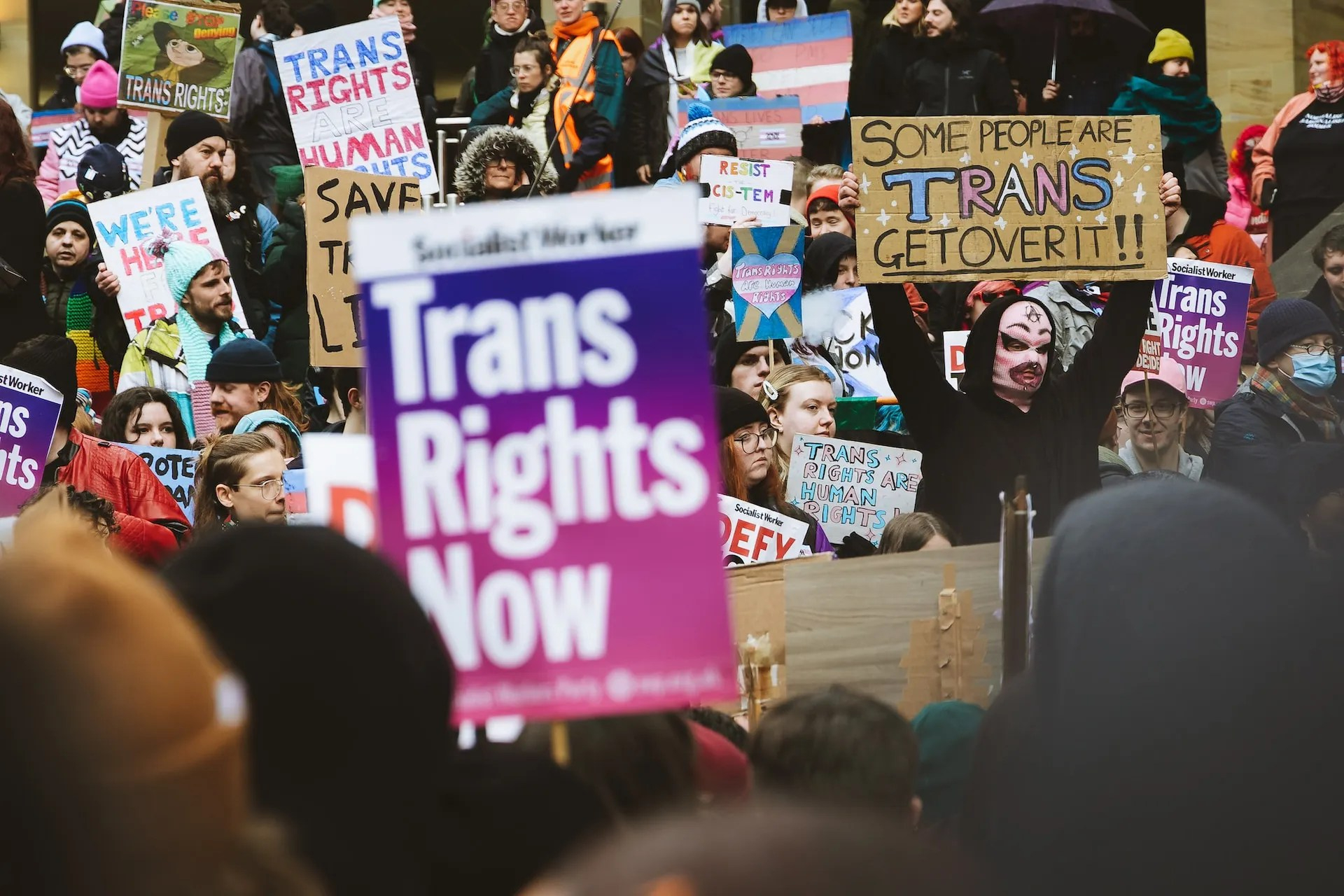There you have it. After years of heated debate both inside and outside Holyrood, the Scottish Government’s gender law has been passed. This afternoon, after a marathon Stage 3 debate, 86 MSPs gave final assent to the Gender Recognition Reform (Scotland) Bill. 39 voted against. In a few months, barring a legal challenge, people aged 16 and above in Scotland will be able to change their legal sex through a controversial self-ID process.
A number of MSPs who voted against the bill risk political ramifications. SNP and Labour members defied a whip, meaning they could be punished by party bosses. These people deserve huge respect. As do the many brave women campaigners, policy analysts and others who have fought this woeful legislation for years. Dozens of women in suffragette colours were in the public gallery today, their presence a visible reminder that women oppose this law. They aren’t going away.
The stand-out speaker for me this week has been SNP rebel Ash Regan, who previously resigned a ministerial post to oppose the bill. Ms Regan spoke passionately about the risks posed by self-ID, and challenged fellow MSPs not to back legislation if they have any doubt about risks to women. “Scotland is watching”, she said. “We often use legislation to send a message… I’m sad to say that the message being sent out to women and girls today is ‘you don’t matter’”.
Rebel MSPs notwithstanding, nobody who has followed this debate closely will be surprised by the final result. It was technically possible for MSPs to order a rethink, even at this late stage. But the tin-eared response of certain politicians in past months, and the passage of other controversial laws in recent years, made it a near certainty. Scotland’s political establishment has developed a penchant for enshrining bad law in the area of social policy.
Rebels notwithstanding, nobody who has followed this debate closely will be surprised by tonight’s result
The Gender Recognition Reform Bill received a huge level of criticism, from various quarters. Its critics include, but certainly aren’t limited to, a UN special rapporteur; the Equality and Human Rights Commission; feminist campaigners; women rape survivors; distinguished lawyers; medical experts; senior politicians; child safeguarding organisations; and faith groups. Around two thirds of the public also oppose key aspects of the legislation, according to a poll this month.
The reasons for this opposition were clear from day one. One: A self-ID system can be abused by nefarious men, as comparable prison policies demonstrate. Two: If males can easily attain legal recognition as female, it erodes women’s sex-based rights under other legislation. Three: Self-ID could further accelerate and normalise transitioning in a context where growing numbers of young people are attesting to the harms of this process. None of these fears have been allayed.
The Gender Bill passed in spite of them. Numerous, sensible amendments were swept aside. This included amendments to stop sex offenders applying for a GRC. And amendments to prevent the legal status of being a woman, under the Equality Act, being altered to include anyone over the age of 16 who simply says they are a woman and goes through a self-ID process. Serious consequences now loom: legally and socially. For women, for children, for detransitioners.
So how has this happened? How could this problem law pass? Some MSPs refused to engage with concerns from day one. They think the bill is about helping people and view any criticism as problematic – driven by wrongthink or hate. Some have been captured by unscientific gender ideology. Some are blindly loyal to the government. I suspect a good number simply counted the costs of voting no: “Better to vote yes than risk being labelled a bigot. Besides, it’s going to pass.”
Around two thirds of the Scottish public are opposed to key aspects of the bill, according to polling this month
This is an oversimplification of MSPs’ thinking but there’s truth in it. There’s a culture at Holyrood that leads critical faculties to be placed on hold if a bill is dressed up in certain terminology: progress, equality, rights. And there’s a culture of fear that leaves even the boldest MSPs feeling unable to criticise ill-devised legislation in this category because of how they will be perceived. I’ve seen these cultures during scrutiny of several bills and they don’t make for sound law-making.
The Gender Bill isn’t the first bad law we’ve seen, it’s part of a now familiar saga: Controversial, and generally unnecessary, policy is demanded by fringe activists with an inordinate amount of influence over decision-makers. Decision-makers herald this policy as the next big thing, flagging their own modish credentials. Critics who raise concerns are accused of being backwards, or guilty of some deep intolerance or ignorance. The flawed policy passes.
Something is badly wrong when Scotland’s parliament is failing, time and again, to reject ill-devised policies, usually opposed by the majority in Scottish society. Policies that go on to cause real-world problems. Democracy is failing in Scotland. If we are to avoid a perpetual cycle of bad laws, things need to change. Today, in the wake of this shoddy legislation, we should move beyond the opprobrium to ask: what can be done to get us out of this mess? A few ideas come to mind.
Decision-makers need to invite a true plurality of voices to shape policies, and ensure the influence of lobby groups cannot become disproportionate. Reform is needed to ensure robust scrutiny – in the committee system and corporate debates. This may require structural changes to prevent a majority government dominating committees, a fresh look at the consultation process, and changes to rules to ensure a better quality of debate. Perhaps an extra sitting day would be helpful.
Something is badly wrong when Scotland’s parliament is failing, time and again, to reject ill-devised policies
More widely, we need culture change in Scottish politics – including the positive promotion of free expression and genuine diversity of thought. MSPs must feel able to speak their minds and speak up for their constituents. People who don’t fit the ‘progressive’ mould need to feel able to stand as MSPs. To realise this goal, parties will need to quash illiberal activism. We cannot afford to have a politics stacked with people who think the same, and deny others the right to speak.
The debate over the Gender Bill saw people from various walks of life engage with politics for the first time, and take action in various ways. Grassroots organisations have grown up, taking the fight to the Scottish establishment and the coterie of favoured lobbyists who they farm out policy development to. This has only been good for Scottish democracy. More grassroots activity and political engagement is required for those in power to be properly held to account.
I realise these are just a few ideas, and that even they are a big ask in the current context. Our national story in recent years has involved increasing democratic decline. What’s certain is that Scotland deserves better than the status quo. And we gain nothing from feeling despair. Many are angry today. I stand in solidarity with you. Let this anger inspire resolve, and become a catalyst for change.





Leave a Reply to Joseph KeenanCancel reply